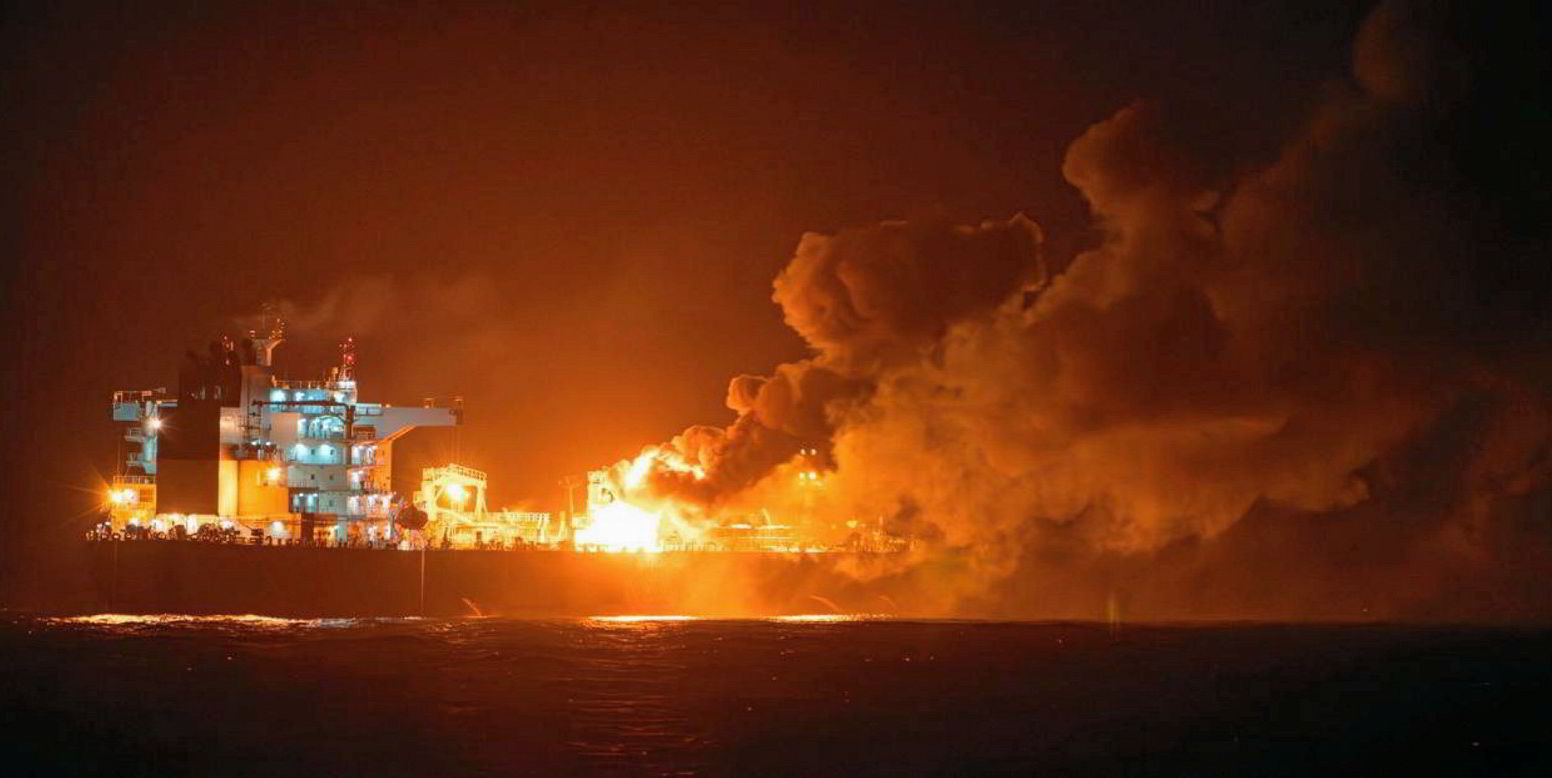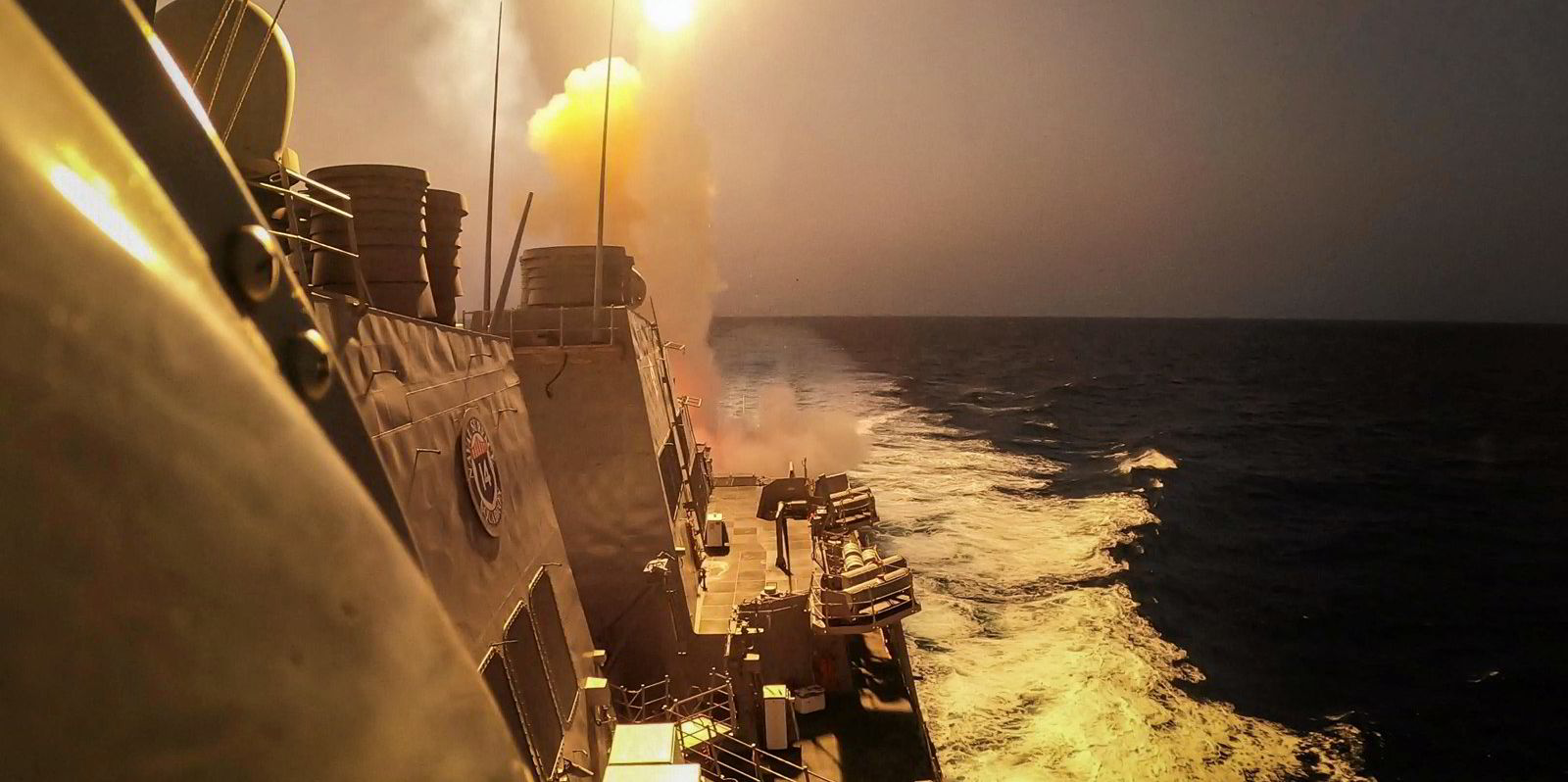A decision by the reinsurance market to withdraw backing to protection and indemnity clubs for their fixed premium business in the southern Red Sea and Gulf of Aden has drawn criticism.
Steamship Mutual is the latest club to announce the cancellation of cover for charterers and fixed premium P&I with war risk extensions in the troubled region.
The move comes after its reinsurers withdrew backing for risks in the southern Red Sea, Gulf of Aden and part of the Indian Ocean amid continued Houthi attacks on shipping.
P&I club Skuld earlier made a similar announcement and others are expected to follow.
The move could potentially leave charterers and shipowners with fixed premium insurance in the designated regions without third-party liability cover unless clubs can line up an alternative policy in the coming week.
Mutual P&I cover in the region remains unaffected.
Commenting on LinkedIn, Steamship Mutual chief executive Jonathan Andrews said the decision by reinsurers is “disappointing”.
He told clients: “We are now establishing a new war facility for our charterer members and those members with fixed premium covers.”
Richard Adler, chief commercial officer at Lloyd’s of London marine insurance broker Atlantic, said the sudden decision had left charterers continuing to trade in the region with an “unsettling exposure”.
He said it raised questions over the reinsurance market’s backing for shipping in light of a decision a year earlier to also pull out of covering Russian and Ukraine exposures.
Withdrawal criticised
“It feels wrong and shows a lack of support from reinsurers to pull the cover so suddenly before the clubs or we as brokers can put a buy-back or bridge cover in place,” Adler told TradeWinds.

“The clubs have been quick out of the blocks to rectify the situation and will do so again on this occasion, but what is beyond comprehension is the lack of pre-warning and insufficient communication in the process of both renewals in the Red Sea and then on the Russian-Ukraine exclusion,” he said.
“It might sound oversimplified, but the bottom line is that the poor outcome just passes the wrong message to our industry when unconditional support is most needed to continue to enable global trade.”
Adler emphasised the importance of P&I clubs exploring avenues to lessen their reliance on reinsurers, which have typically benefited from supporting the marine market.
He urged the clubs to “get back in the driving seat” to develop alternatives.
“P&I clubs and the shipping market deserve a greater degree of commitment from reinsurers as a whole.
“This is easier said than done — I have no illusions — but we cannot be at the mercy of a few where another surprise is just around the corner.
Change in mood
“New avenues must be explored with the ambition to create even more robust reinsurance programmes,” he said.
International Union of Maritime Insurance representatives were in London recently voicing confidence that war risk insurance would remain in place in the Middle East and Black Sea region.
IUMI represents direct insurers that renewed annual cover with their reinsurers on 1 January before attacks on shipping by Yemeni-based Houthi rebels intensified.
Primary war risk insurers have been able to provide cover unaffected by the recent change in mood in the reinsurance market.






